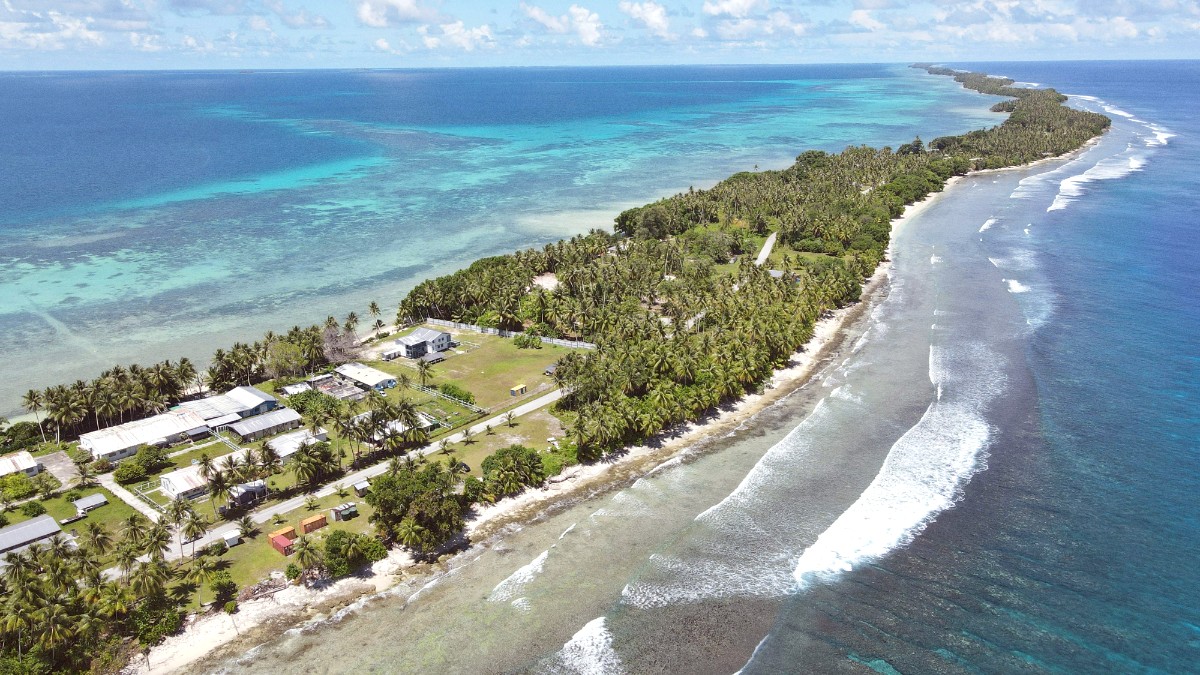
The Funafuti Conservation Area (FCA) islets, like Funafala and Tepuka Vili Vili, cluster on the western side of the Funafuti atoll, within the lagoon's protective embrace.
These uninhabited islets are the main accessible spots for day trips from Fongafale, the main islet, noted for their untouched beaches, clear waters, and pristine natural settings.
The sole practical way to the FCA islets is by chartering a private boat with a local operator. Arrangements are often made via guesthouses, the Vaiaku Lagi Hotel, or by directly approaching boat owners in Vaiaku's port.
Tuvalu lacks formal tour companies offering pre-packaged excursions to the FCA. Instead, expect informal arrangements with local boat owner-operators.
Tuvalu's natural environment is its defining characteristic, centered on the pristine lagoon and the isolated beauty of its coral atolls.
The Funafuti Conservation Area (FCA) is Tuvalu's main marine nature reserve. It guards a large part of the lagoon, its coral reefs, and the small, uninhabited islets within its bounds.
The vast, clear lagoon, with its varied shades of blue, from shallow turquoise to deep indigo, represents the most scenic landscape. Its calm waters beautifully mirror the sky.
Numerous white sand beaches line the lagoon side of Fongafale and the motu within the FCA. These locations are perfect for relaxation and swimming. The northern and southern parts of Fongafale offer a more residential and rural feel.
Tuvalu has no mountains or noteworthy elevation. Its landscape consists of flat terrain and proximity to sea level. The "Borrow Pits" on Fongafale, areas where soil was excavated during WWII, form unique brackish ponds.
The FCA islets function as nesting sites for various migratory seabirds. Bird enthusiasts can observe these species during particular times of the year.
Cultural experiences in Tuvalu commonly involve connecting with local life and history, often extending beyond Vaiaku.
Beyond the airstrip on Fongafale, remnants of WWII bases and shipwrecks are found around the Funafuti Lagoon. Accessing submerged sites calls for a boat trip.
A visit to the more remote northern and southern edges of Fongafale islet displays traditional homes and small agricultural plots where families cultivate pulaka and taro.
While part of the FCA, Funafala occasionally hosts a few families. A visit (with permission) provides a look into more traditional village life and local customs, distinct from the busier Vaiaku.
Tuvalu does not have specific pilgrimage sites for tourists. However, churches are central to community life and spiritual practice.
A longer stay on Funafuti allows for a more relaxed pace. Engage more deeply with local life, undertake multiple boat trips, or dedicate time to specific activities.
Spend more time on the lagoon or with local communities.
Consider deep-sea fishing trips for an unique local experience.
Converse with locals and learn about their customs.
Tuvalu's flight schedule (typically twice a week) means true "layovers" are not common. Plan for at least several full days here.
Fiji serves as the main hub for connecting flights to Tuvalu, offering a broad range of tourist experiences, from luxury resorts to adventure and cultural tours.
Kiribati is another remote Pacific island nation. While direct connections from Tuvalu are unavailable, it shares a similar off-the-beaten-path appeal.
These Polynesian nations feature more developed tourism infrastructure and distinct cultural distinctions for a different regional experience.
Discover quiet, remote atoll life and local customs.
Explore Viti Levu, Mamanucas, or Yasawas for beaches and resorts.
Connect to Australia, New Zealand, or other Pacific Islands like Samoa, Vanuatu, or the Cook Islands.